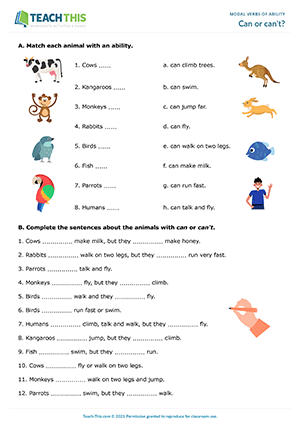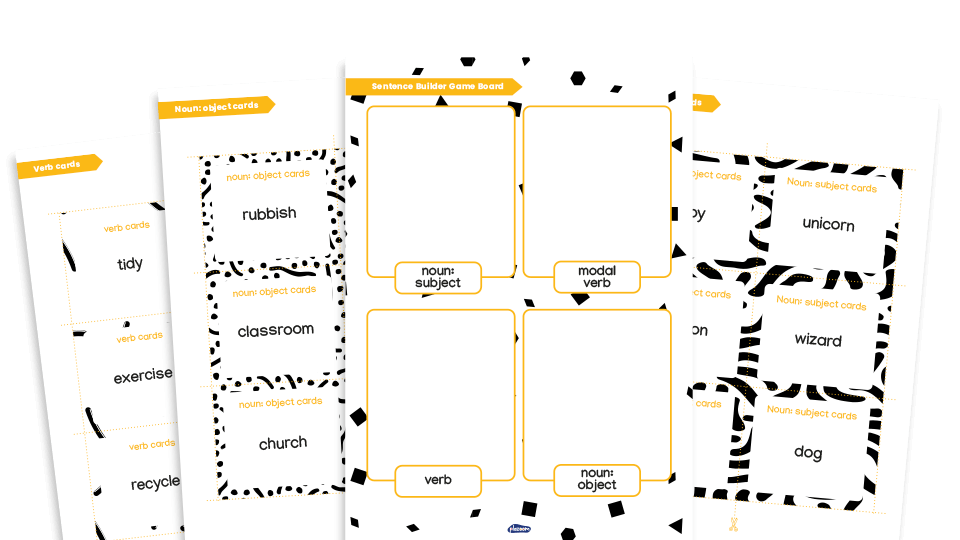

Important: The explanations and examples on this page are just an introduction to this extensive and complex area of English grammar. For example: Must I come? ( Do I must come?), or: He shouldn't smoke ( He doesn't should smoke). They do not need an additional auxiliary in negatives or questions. The answer shown as correct is the one that is expected in traditional grammar. Note: In some questions more than one of the answer choices may be heard in current English. I would love to be able to play the piano. Click the correct modal or modal form to fit the sentence. I'm not sure if I will be able to come to your party. I haven't been able to solve this problem. I couldn't/wasn't able to walk until I was 3 years old. You'll have to work hard if you want to pass the exams. She's had to return to Korea at short notice. The modals must and can need substitute verbs to express obligation or ability in the different tenses. There are four activities with different levels of difficulty and a short grammar explanation. It´s an easy OE for students to practise the use of the modals CAN, CAN´T, MUST and MUSTN´T.

FIND THE CORRECT MODAL :CAN, MUST OR MUSTN´T. They do not change their form (spelling) and they have no infinitive or participle (past/present). Two exercises with modal verbs: multiple choice and fill in the gaps. Below is a list showing the most useful modals and their most common meanings:

They are used with other verbs to express ability, obligation, possibility, and so on. Please contact me if you have any questions or comments.The modal verbs include can, must, may, might, will, would, should. Welcome! I'm Seonaid and I hope you like the website. Click on the links below to try the exercises. Need more practice? Get more Perfect English Grammar with our courses. The modal verbs exercises at learnEnglish-online help you practice using modal verbs for different reasons. As this is a specific possiblity, 'could be' is present tense) He could have been working late (not: 'could be'.This is not used to talk about specific possibilites in the past (instead we use could + have + past participle): Prices could be high in the sixteenth century.We can use could + infinitive to talk about a general possibility in the past (compare with the use of 'can' above): Should + have + past participle Should + have + past participle can be used to make an assumption about something that has probably happened, if everything is as we expect (compare with present use of 'should' above): Good luck Modal Verbs Exercise Fill in the spaces with the correct modal verb: Could, Would, Should, Must, Can, or Might. Do you think you can choose the correct modal verb for each situation Find out below. This modal verbs exercise checks your understanding of all the modal verbs. The parcel will have arrived before now. Modal verbs have many different uses in English.Will / won't + have + past participle Will and won't / will not + have + past participle are used for past certainty (compare with present use of 'will' above): She must have forgotten about our date.could / couldn't have + past participle.might / might not have + past participle.
#Esl modal verbs exercises how to#
( Click here to review how to make the past participle)

I am waiting for Julie with another friend, David. 1: Talking about the present: must / might / could / may / can't + infinitive We choose the verb depending on how sure we are. Printable and online Modal Verbs exercises with answers- May, must, should, can, could, need to.Modals + Have +. We can use these modal verbs (also called modals of deduction, speculation or certainty) when we want to make a guess about something. Click here for all the exercises about modal verbs


 0 kommentar(er)
0 kommentar(er)
